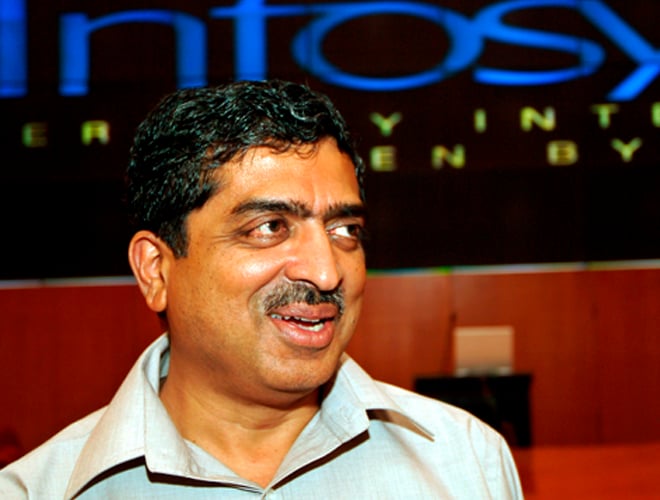
Nandan Nilekani:'This is a Sales Job'
Nandan Nilekani is getting ready to manage the most technologically challenging and largest scale project he has ever handled: the national identity project. Here, he tells Forbes India how the skills he learnt at Infosys will help him in the new assignment
Of all the opportunities available to you, why did you choose to head the national identity project?
This is a very very complex and a very difficult project, it is really challenging. The scale of it is unprecedented. It has stakeholders across many levels and if you can pull it off the rewards will be great. It can have a big impact on so many different things that the government wants to do. So I was attracted by the twin facets of it: Big impact and high risk. If I had to give up my career at Infosys for something, it had to be impactful like this.
Why is this project such a killer application for the government?
It is absolutely a killer app. Look at it. So many poor people in this country are not included because they don’t have an identity. Think of an immigrant from UP who comes to work in Delhi. Because he does not have an identity, migrants have no life. They have to run from pillar to post to secure ration and so on. The government cannot give them vouchers or any kind of relief, be it healthcare or any other financial inclusion. So this is the base on which everything can work. It is the foundation for everything else.
So, for it to work well it will have to work with all other departments of the government…
Yes, it must have high inter-operability. The entire solution has to be designed in a way that it can talk to other government departments — healthcare or education and so on. It will be the glue that holds all the other departments together.
What will be some of the biggest challenges of this project?
First of all the technology. The scale of this project is unprecedented – you are talking about a billion people. All of this will work on biometrics. So the technology will have to make sure that there are no duplicates in the database. People have managed to get multiple PAN cards or 10 PDS cards that cannot happen here. Duplicates are the bane of any system and we will have to ensure that it doesn’t happen here.
The second is reaching all the people. How does one go to a billion people and get cards done for all? So the scale is another challenge.
The third is there are multiple departments and stakeholders that are involved in this project. And there are going to be multiple suggestions on how to do this. Every department works in a silo — so education and healthcare are working independently. Then Centre and state governments will have their own thinking.
How do you build consensus there? Which is why I thought I could take a shot at this. In many ways, it is the same challenge that a corporate also has where departments work in silos. One way in which I think it will work is if I can come up with some simple rules that are understood by everyone and persuade everyone to agree.
How will your Infosys experience help you?
This job needs consensus building, very high networking abilities and also heavy persuasion, a sales job. All these are things that I had done at Infosys.
Why didn’t the earlier attempts work? Have you studied some other models?
Look, honestly I haven’t had the time to study this or do a due diligence. It just happened too soon. But I have asked my friends to suggest some models and looked at some other countries like Singapore, Oman and Latvia. It works there but they are all sub-10 million population. India’s scale is so big. We obviously have to see best practices from others. But this is completely unchartered territory.
Will you hire a team?
There are already people who are working on this. I haven’t yet met them. I have also asked for help from volunteers.
Did you ever think you will have a government job? With you joining the government, will government jobs become aspirational now?
[Laughs] Who would have thought of that? Obviously the massive transformational promise of a project of this kind is hard to resist and while I have achieved success in other fields this is a new area.
But I can’t tell you how many people have been writing to me. Indians living abroad — who have worked for 20 years — they want to come work on this. Some are even saying that they don’t even need to be paid. They just want to do something that makes a difference. It obviously gives people an entry point.
How is the shift from corporate sector to public policy for you?
In many ways, it will be like a startup again. I don’t have a car, a driver or a secretary… It was a big decision but my family was very supportive. Logistically, it is going to be difficult for all of us. We are well settled in Bangalore, my mother’s old and she lives with us, Rohini [my wife] has her work here [Bangalore] and our dogs are here.
How does it feel for you to leave Infosys?
It hasn’t yet sunk in. This happened so fast… But whenever I get a moment and think about it, I have this empty feeling in my stomach. It’s like I am leaving a protective environment for this whole new world which is completely unknown to me.















